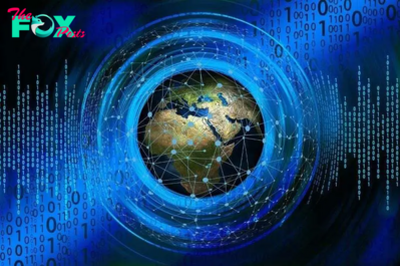Technology
'Their capacity to emulate human language and thought is immensely powerful': Far from ending the world, AI systems might actually save it
Over the last few years, artificial intelligence (AI) has been firmly in the world's spotlight, and the rapidly advancing technology can often be a source of anxiety and even fear in some cases. But the evolution of AI doesn't have to be an inherently scary thing — and there are plenty of ways that this emerging technology can be used for the benefit of humanity.
Writing in "AI for Good" (Wiley, 2024), Juan M. Lavista Ferres and William B. Weeks, both senior directors at Microsoft's AI for Good Research Lab, reveal how beneficial AI is being used in dozens of projects across the world today. They explain how AI can improve society by, for example, being used in sustainability projects like using satellites to monitor whales from space, or by mapping glacial lakes. AI can also be used in the wake of natural disasters, like the devastating 2023 earthquake in Turkey, or for social good, like curbing the proliferation of misinformation online. In addition, there are significant Health benefits to reap from AI, including studying the long-term effects of COVID-19, using AI to manage pancreatic cysts or detecting leprosy in vulnerable populations.
In this excerpt, the authors detail the recent rise of large language models (LLMs) such as ChatGPT or Claude 3 and how they have grown to become prominent in today's AI landscape. They also discuss how these systems are already making a significant beneficial impact on the world.
The rise of language models
At the core of today's linguistic technologies, such as GPT, lies the concept of a language model. Imagine you begin a sentence with "This morning I woke up and saw a beautiful blue _____." What should follow? A language model predicts the continuation based on probabilities derived from vast amounts of text data. For instance, words like "sky" might be highly probable continuations. However, the model's sophistication allows it to consider a diverse range of possibilities, such as "bird" or "car," each with a specific probability, showcasing its nuanced understanding of different contexts.
Despite their limitations, the influence of LLMs has been remarkable, especially in the latter part of 2023. For instance, GPT-4 has achieved significant milestones, such as passing both the multiple-choice and written sections of the bar exam. The true strength of these models lies in their ability to learn from a vast source of information: the World Wide Web. This immense resource contains a significant portion of our collective human knowledge and is by far the most important dataset in the world. By training on this enormous dataset, LLMs can build a representation of the world that replicates the complex relationships found within human understanding.
Related: 32 times artificial intelligence got it catastrophically wrong
In summary, while these advanced LLMs don't possess real understanding or consciousness, their capacity to process and emulate human language and thought is immensely powerful. As we continue to evolve and refine these technologies, it's crucial to understand their abilities, limitations, and the ethical implications they bring.
-

 Technology2h ago
Technology2h agoRethinking screen time: A better understanding of what people do on their devices is key to digital well-being
-

 Technology2h ago
Technology2h agoAn 83-year-old short story by Borges portends a bleak future for the internet
-

 Technology20h ago
Technology20h agoFacebook users in Germany can seek compensation for 2018–2019 data misuse | The Express Tribune
-

 Technology1d ago
Technology1d agoFrom using plant rinds to high-tech materials, bike helmets have improved significantly over the past 2 centuries
-

 Technology1d ago
Technology1d agoWhy do I feel better when I wake myself up instead of relying on an alarm? A neurologist explains the science of a restful night’s sleep
-

 Technology1d ago
Technology1d agoApple offers fix after iPhone users report missing iCloud notes | The Express Tribune
-

 Technology2d ago
Technology2d agoBluesky’s rise: why users are migrating from X? | The Express Tribune
-

 Technology2d ago
Technology2d agoNorth Pole shift towards Russia alarms scientists, potentially disrupting smartphone accuracy | The Express Tribune



























